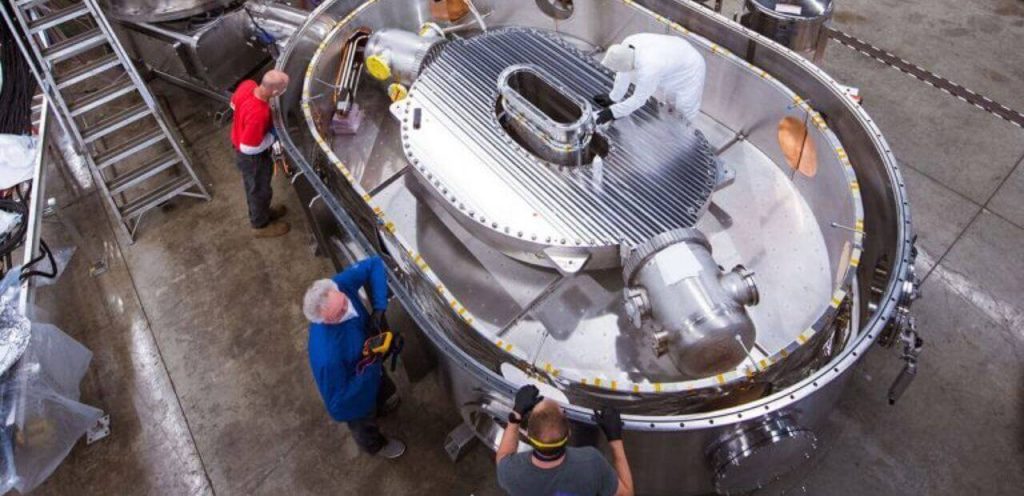The Computer Science branch is generally considered best for pursuing a career in software engineering. It’s foundational and covers a broad spectrum of software development principles and practices.
Embarking on a career in software engineering requires careful selection of your academic branch. Computer Science stands as the cornerstone for those aiming to delve into the depths of programming, algorithms, and system design. This discipline equips students with the critical thinking and technical skills necessary to excel in the software development field.
A strong grounding in computer science fundamentals prepares graduates for the evolving landscape of technology, making them highly sought after in a market that prizes innovation and expertise. In choosing this path, budding software engineers lay the groundwork for a versatile career capable of adapting to the changing currents of the tech industry, from startup culture to corporate IT environments.
Exploring The Foundations Of Software Engineering
Origins Of Software Engineering
Evolution Of Software Engineering Branches
From its inception, software engineering has branched out into numerous specializations, each addressing different aspects of software systems. This segmentation was born out of the need to tackle distinct challenges in software creation and management. Below we map out the transformative journey of these branches:| Branch | Focus Area |
|---|---|
| Computer Science | Theoretical foundations, algorithms, and data structures |
| Software Development | Programming methodologies and coding practices |
| Systems Engineering | Integration of software with hardware and interfaces |
| DevOps | Unifying software development with software operation |
| Quality Assurance | Testing and evaluation to ensure software quality |
Overview Of Software Engineering Branches
Computer Science
- Programming and Software Development
- Data Structures and Algorithms
- Database Management Systems
- Theory of Computation
Computer Engineering
| Area | Description |
|---|---|
| Microprocessors | Study of central processing units and their optimization |
| Embedded Systems | Integration of hardware and software for specialized tasks |
| Computer Architecture | Structure and functionality of computer systems |
| Networks | Interconnection of computers to exchange data and resources |
Information Technology
- System Administration
- Network Security
- Database Administration
- IT Project Management
Identifying Career Paths In Software Engineering
Exploring the diverse branches of software engineering uncovers numerous career paths tailored to an array of technical skills and interests. Choosing the best branch requires evaluating personal strengths and market demand to secure a fulfilling software engineering role.
Roles And Responsibilities
Software engineering encompasses a broad spectrum of roles, each with a unique set of responsibilities. Key positions include:- Frontend Developers – Specialists who design and implement user interfaces.
- Backend Developers – Experts in server-side logic and database management.
- Full-Stack Developers – Versatile professionals skilled in both frontend and backend coding.
- Data Scientists/Engineers – Tech gurus who analyze and interpret complex digital data.
- DevOps Engineers – Innovative thinkers streamlining software development and deployment processes.
Job Opportunities In Different Branches
Diverse sectors within the tech industry offer a variety of job opportunities for software engineers:| Branch | Description | Industries |
|---|---|---|
| Artificial Intelligence | Developing algorithms and systems that emulate human cognition. | Healthcare, Finance, Automotive |
| Cybersecurity | Ensuring the protection of data and systems from cyber threats. | Government, Retail, Banking |
| Mobile Development | Creating applications for mobile devices across various platforms. | Entertainment, E-commerce, Education |
| Cloud Computing | Building and maintaining cloud infrastructure and services. | Technology, Manufacturing, Business Services |
Growth Prospects And Career Trajectory
The right branch in software engineering can lead to a flourishing career. Some of the most promising growth prospects include:- Moving up to management roles, such as Software Development Manager or CTO (Chief Technical Officer).
- Specializing further in areas like Machine Learning, Blockchain, or Internet of Things (IoT) for niche expertise.
- Branching out into entrepreneurship and starting tech ventures.
Navigating Through Computer Science
Exploring the vast field of computer science reveals multiple pathways, yet software engineering consistently shines for its robust career prospects. Selecting a specialization within this branch often hinges on individual interests and industry demands, guiding aspiring software engineers toward a promising future.
Curriculum And Specializations
The foundation of any software engineering career begins with a robust curriculum. It equips students with the essential principles of computing, programming languages, software development methodologies, and the practical application of these skills. Most Computer Science degrees are structured to offer both theoretical knowledge and hands-on experience in:- Data structures and algorithms
- Operating systems principles
- Database management
- Computer networking
- Artificial Intelligence
- Machine Learning
- Mobile and Web Development
- Cybersecurity
- Data Science
Research And Development Opportunities
Software engineering is an evergreen field with continuous innovations impacting numerous other sectors. Research and development are paramount, not only to the advancement of technology but also to a software engineer’s personal growth and career trajectory. Universities and colleges often provide:| Opportunity | Benefits |
|---|---|
| Collaborative Projects | Networking, real-world experience |
| Labs and Facilities | Hands-on learning with advanced technology |
| Faculty Expertise | Mentorship from industry-experienced professors |
| Industry Partnerships | Access to cutting-edge industry resources and insights |
Delving Into Computer Engineering
Exploring the vast field of computer engineering reveals that software engineering stands out for its creative and practical applications. Determining the best branch requires evaluating each area’s unique blend of theory and hands-on learning, ensuring a robust foundation in designing innovative software solutions.
Hardware-software Integration
- Firmware development: Crafting the code that speaks directly to the hardware.
- Driver design: Enabling communication between the operating system and the device peripherals.
- Performance optimization: Fine-tuning systems to squeeze out every last drop of efficiency.
Embedded Systems And Iot
- Microcontrollers: The brains within countless devices, from home appliances to industrial machinery.
- Network connectivity: Ensuring devices can communicate, collect, and exchange data seamlessly.
- Security: Implementing protocols to protect the systems and data they contain from cyber threats.
System Architecture And Design
| Aspect | Focus Area |
|---|---|
| Architecture Modeling | Developing the structural design of software and hardware integration. |
| Scalability Planning | Ensuring systems can evolve to meet increasing demands. |
| Performance Analysis | Assessing and enhancing system throughput and responsiveness. |
Unraveling Information Technology
Exploring the vast landscape of Information Technology, determining the optimal branch for software engineering is pivotal. Each field offers unique prospects; Computer Science often emerges as the top choice due to its comprehensive curriculum and focus on foundational skills.
Applied Information Systems
- Database Management: Developing and administering databases to store and retrieve critical business data securely.
- Systems Analysis: Analyzing business requirements to design responsive information systems that align with company strategy.
- Project Management: Overseeing IT projects from inception to completion, ensuring they meet specifications within budget and timeframe.
| Concepts | Applications | Tools |
|---|---|---|
| User Experience (UX) Design | Improving software usability | Sketch, Adobe XD |
| Enterprise Resource Planning (ERP) | Optimizing business processes | SAP, Oracle |
| Customer Relationship Management (CRM) | Strengthening client relationships | Salesforce, Microsoft Dynamics |
Network Administration And Security
- Network Infrastructure: Designing and implementing robust network architectures to support the communication needs of businesses.
- Data Protection: Crafting defense mechanisms to protect sensitive information from unauthorized access and cyber threats.
- Compliance: Ensuring network practices adhere to regulatory standards such as GDPR, HIPAA, or PCI DSS.
| Skill Area | Relevance | Tools & Technologies |
|---|---|---|
| Cybersecurity | Preventing cyber attacks | Firewalls, Antivirus software |
| Network Troubleshooting | Resolving connectivity issues | Wireshark, Network analyzers |
| Cloud Services Management | Administering cloud-based infrastructures | AWS, Microsoft Azure |
Distinguishing Factors Among Branches
Technical Skill Sets
The realm of software engineering is vast and the technical skill sets required can vary greatly among different branches. For instance:- Front-end Development: Mastery of HTML, CSS, and JavaScript along with frameworks like React or Angular.
- Back-end Development: Proficiency in server, database, and application logic using languages such as Python, Ruby, or Java.
- Data Science: Expertise in data analytics, machine learning algorithms, and statistics.
- DevOps Engineering: Skills in automation tools, system administration, and cloud computing.
Industry Demand And Trends
Each branch of software engineering aligns with specific industry needs:| Branch | Demand |
|---|---|
| Mobile Development | High demand due to the surge in mobile usage. |
| Cybersecurity | Growing demand with increasing cyber threats. |
| Artificial Intelligence | Renewed focus on AI-driven technologies. |
Career Satisfaction And Work-life Balance
Different branches offer varied experiences in terms of career satisfaction and work-life balance:- Product Management: High satisfaction from leading projects but can be demanding.
- Software Testing: Ensures a solid work-life balance but might lack the dynamism some seek.
- Game Development: While exciting, often involves tight deadlines and cyclical crunch periods.
Best Branch For Specializations
Artificial Intelligence And Machine Learning
- Designing intelligent systems that improve everyday life
- Creating sophisticated algorithms for predictive analytics
- Revolutionizing industries with automated and intelligent solutions
Cybersecurity And Ethical Hacking
- Essential skills to protect information systems from cyber threats
- Techniques for performing ethical hacking to identify and rectify vulnerabilities
- An understanding of various compliance and security standards
Software Development And Engineering
- A comprehensive skill set in designing, coding, testing, and maintaining software applications
- An intricate understanding of software life cycles and methodologies like Agile and DevOps
- Proficiency in a variety of programming languages and tools
Factors Influencing Branch Selection
Personal Interests And Aptitude
- What software development areas spark your curiosity?
- Are you more inclined towards front-end visuals or back-end systems?
- Does data analytics excite you?
- Are you fascinated by the security aspect of software?
Market Demand And Growth Opportunities
- Job vacancy trends in different software engineering branches.
- Potential for new technologies influencing market needs.
- Salary benchmarks and industry demands for specific skill sets.
Learning And Development Prospects
| Branch | Learning Opportunities | Career Advancement |
|---|---|---|
| AI & ML | Specialized courses, workshops, and certifications | Pathway to becoming a data scientist or AI specialist |
| Cloud Computing | Cloud platform certifications (AWS, Azure, GCP) | Potential roles in cloud architecture and management |
| Cybersecurity | Security protocols, ethical hacking courses | Roles like security analyst or CISO |
Weighing Pros And Cons
Analyzing Job Market And Career Growth
- Data science and machine learning offer cutting-edge opportunities, with a surge in demand for skilled professionals adept at interpreting big data and developing intelligent solutions.
- Mobile app development continues to grow, catering to the expansive use of smartphones and tablets.
- Full-stack development provides versatility, as these engineers possess a diverse skill set that encompasses both front and back end development, making them highly sought after.
| Branch | Projected Growth | Average Salary |
|---|---|---|
| Cloud Computing | High | $120,000 |
| Software Development | Moderate | $105,000 |
| Cybersecurity | Very High | $115,000 |
Evaluating Individual Skills And Aspirations
While industry trends are crucial, aligning career choices with personal skills and goals is equally important for long-term success and fulfillment in software engineering. Are you passionate about building visually stunning and user-friendly interfaces?- Front-end development might be your calling, focusing on translating design into functional websites and applications.
- Consider back-end development, where the efficiency and reliability of the server, database, and application are your primary responsibilities.
- The journey towards becoming a software project manager could be an exciting path, blending technical know-how with strategic oversight.
| Branch/Skillset | Characteristics | Suitable For |
|---|---|---|
| User Interface Design | Creativity, Aesthetic Sensibility | Visual Thinkers |
| Software Testing | Attention to Detail, Analytical Mind | Problem-Solvers |
| System Architecture | Big-Picture Thinking, Planning | Visionaries |
Enhancing Employability
Selecting the right branch in software engineering is crucial to boosting employability. Specializing in a field with high demand, such as artificial intelligence or cybersecurity, can lead to promising career prospects.
Skill Development And Continuous Learning
- Coding Proficiency: Regular practice and tackling a variety of coding challenges enhance problem-solving capabilities.
- Project Management: Learning how to manage software projects from inception to delivery is vital for career progression.
- Team Collaboration: Nurturing a collaborative mindset is crucial as software development is often a team endeavor.
- Versatility: Diversifying skills across different technologies prepares professionals for a broad array of challenges and opportunities.
Industry Certifications And Specialized Courses
| Area of Specialization | Recommended Certifications |
|---|---|
| Cloud Computing | AWS Certified Solutions Architect, Microsoft Certified Azure Solutions Architect |
| DevOps | Docker Certified Associate, Kubernetes Administrator |
| Machine Learning | Google Professional Machine Learning Engineer, IBM AI Engineering Professional Certificate |
Advice For Aspiring Software Engineers
Embarking on a career in software engineering is an exhilarating journey filled with endless opportunities for growth and creativity. With the ever-growing demand for technological innovation, software engineering has firmly established itself as a field teeming with potential. But with so many branches within the field, how do aspiring engineers decide which path to take? The following advice is tailored to guide you through the process of identifying the branch that best aligns with your passions and skill set.
Self-assessment And Career Planning
Becoming a software engineer requires a blend of technical knowledge and soft skills. Before you dive into the specifics of each branch, conduct a thorough self-assessment. Understand your strengths, weaknesses, and interests.
- Interests: Reflect on areas of technology that fascinate you. Do you enjoy web development, artificial intelligence, or perhaps, cybersecurity?
- Skills: Consider your current expertise. Are you proficient in certain programming languages or software tools?
- Learning Style: Identify how you best acquire new skills. Are you more of a visual learner, or do hands-on projects help you understand better?
| Branch | Skills Required | Growth Potential |
|---|---|---|
| Front-End Development | HTML, CSS, JavaScript | High |
| Back-End Development | Python, Ruby, Node.js | High |
| DevOps | Continuous Integration, Containerization | Very High |
| Machine Learning | Data Analysis, Neural Networks | Very High |
Seeking Mentorship And Guidance
- Joining tech communities or online forums like Stack Overflow and GitHub
- Attending workshops, webinars, and industry conferences
- Enrolling in professional courses that provide mentorship opportunities
Through strategic self-assessment and active mentorship, you can pave a pathway to not only choose the best branch for you in software engineering but also secure a future that aligns with your personal goals and passion for technology.
Conclusion And Action Plan
Finalizing The Best Branch
Crafting A Career Roadmap
- Networking with industry professionals
- Securing internships and project experiences
- Building a strong portfolio to showcase your skills
- Identify the skills and technologies critical to your chosen branch and put a plan in place to master them.
- Connect with mentors and peers who can provide guidance and feedback.
- Stay abreast of industry trends by subscribing to relevant publications and forums.

Credit: www.amazon.com
Frequently Asked Questions On Which Branch Is Best For Software Engineering?
What Are Top Software Engineering Disciplines?
Software engineering covers several specializations such as systems software, application development, and web development. Each discipline focuses on different aspects of software creation and maintenance.
Which Engineering Field Suits App Development?
To excel in app development, pursue a software engineering branch specializing in mobile computing or application design, which provide targeted skills and knowledge.
Is Ai Integrated With Software Engineering?
Artificial Intelligence (AI) is increasingly integrated into software engineering, providing tools and methodologies for developing advanced, responsive, and intelligent applications and systems.
How Does Software Engineering Vary By Industry?
Software engineering adapts to industry needs, with branches like financial technology, healthcare, and gaming, which demand specific security, regulation, and user engagement strategies.
What Impact Does Education Have On Software Engineering?
The quality and focus of one’s education in software engineering can significantly impact career opportunities and expertise in diverse software development fields and technologies.
Conclusion
Deciding on the right software engineering branch is a personal journey. Match your interests with the field’s demands to thrive. Career goals, passion, and the tech landscape guide your choice. So, assess carefully and choose the path that aligns with your vision for success in this innovative industry.









